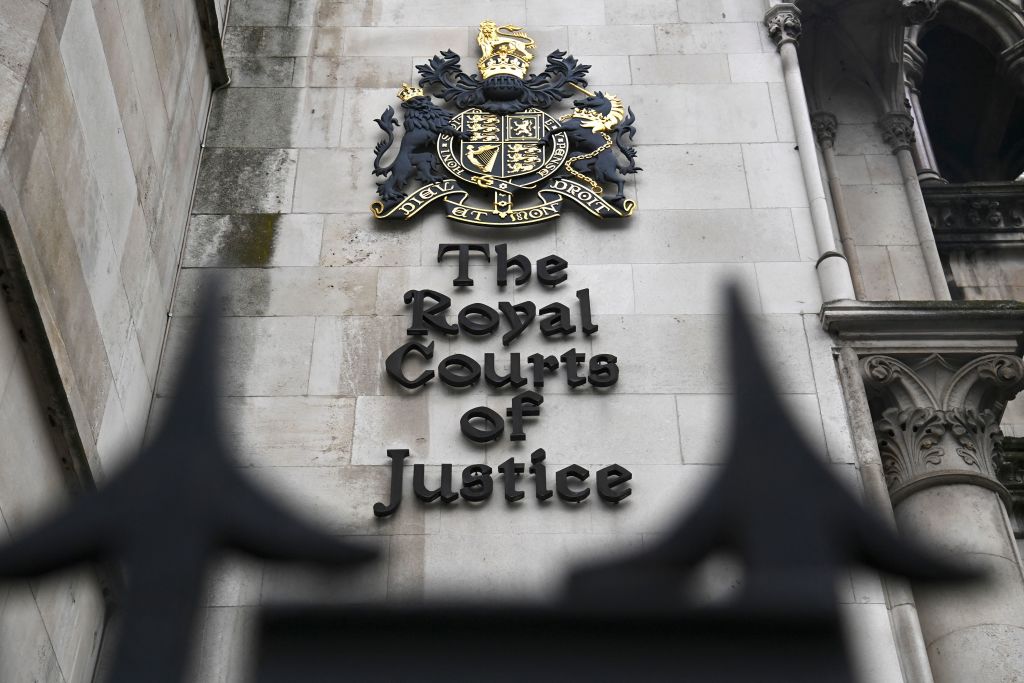The Duchess of Sussex’s legal ding-dong with the Mail on Sunday (which published her private correspondence with her father) has been one of those battles where you regret it’s not possible for both sides to lose. But one side did lose, and it deserved to. Meghan was in the right.
I half wish she hadn’t been, if only so we didn’t have to read her statement after the court of appeal found in her favour. It managed the peculiar feat of crowing and simpering at the same time:
‘This is a victory not just for me, but for anyone who has ever felt scared to stand up for what’s right. While this win is precedent setting, what matters most is that we are now collectively brave enough to reshape a tabloid industry that conditions people to be cruel, and profits from the lies and pain that they create. From day one, I have treated this lawsuit as an important measure of right versus wrong.’
The principle does hold: newspapers don’t get to publish the contents of private letters just because they think folk will get a giggle out of reading them.
No, it wasn’t ‘precedent-setting’. No, it wasn’t an ‘important measure of right versus wrong’. And, no, there wasn’t a word of a ‘lie’ in the Mail on Sunday’s reporting: that wasn’t the point at issue. (Longer memories might note that the Duchess’s statement is piquantly reminiscent of Jonathan Aitken: ‘If it falls to me to start a fight to cut out the cancer of bent and twisted journalism in our country with the simple sword of truth and the trusty shield of fair play, so be it.’)
There again, she has no monopoly on humbug. The anti-Meghanists have spooled out some grindingly pompous pi-jaw about the necessity of holding the powerful to account, the importance of free speech and the ancient liberties of the press – as if this were the Watergate investigation rather than a Sunday tabloid chancing its arm on a juicy bit of celebrity gossip and coming a cropper.
Jacob Rees-Mogg’s statement in the Commons was par for the course: ‘It is concerning that the rich and powerful can use the court to protect their private life when others can’t. I would be deeply concerned about anything that undermines freedom of speech.’ As usual, ‘freedom of speech’ is used with airy meaninglessness, and Mr Rees-Mogg has a brass neck affecting to stand against the ‘rich and powerful’. And the implied argument that if something desirable is available to the rich, it’s only fair to make it unavailable to everyone – rather than, say, striving to make it more widely available – seems rather out of character. Does he take the same view of public schools and Savile Row suits?
I hold no brief, here, for the plaintiff. The Duchess emerged from this, as from much else, as self-righteous, clumsily manipulative, hypocritical, and in every respect insufferable. She misled the court. I shan’t say that she lied – because as I understand it her lawyers have been buzzing like well-paid wasps against any outlet that dares to place other than the most indulgent interpretation on her actions – but she did publicly deny having had anything to do with a sympathetic book about her, and only later remembered she’d arranged for the authors to be briefed in detail.

Still, all that aside, she was right. The finding that was made against Associated Newspapers may have been a narrow one, and the staggering costs and ludicrous amount of legal firepower spent arriving at it might have been out of all proportion to the importance of the case, but the principle does hold: newspapers don’t get to publish the contents of private letters just because they think folk will get a giggle out of reading them.
You might remember that this issue came into play years ago in another royal scandal – when it became apparent that Princess Diana’s old boyfriend James Hewitt was looking to raise some scratch by flogging a cache of her letters. In this case, he was quite within his rights. Letters, as physical objects, belong to their recipients. But copyright in the text belongs to the letter-writer. It’s hard not to suspect that tabloid outrage at Hewitt’s desire to sell them was fueled at least in part by the fact that if buying them would secure the right to reproduce them, the red-tops would have been the first people lining up at the auctioneers.
As for the privacy thing, well, there’s something in that too. Those people hooting and wailing about the dreadful threat to the ancient freedoms of the press that this ruling represents: were they making the same noises when the judiciary cracked down on phone-hacking? Does person-to-person communication take on a wholly different moral character when it’s made of sound waves rather than ink on paper? Hard to think so.
It’s just nonsense, too, to imagine that the Duchess’s (well-founded) expectation that the contents of the letter might leak meant that it was okay to publish it when it did. She sent an early draft to her then communications secretary saying: ‘Obviously everything I have drafted is with the understanding that it could be leaked so I have been meticulous in my word choice.’ You might equally well argue that because someone insures their property against theft it’s okay to rob them.
Nope, in this case the issues were clear cut, as the courts have found not once but twice; and the fact that the Duchess of Sussex is rich and powerful and annoying is neither here nor there. If I were the Mail on Sunday I’d take my lumps and chalk it up to experience. There’ll be other battles to fight.







Comments